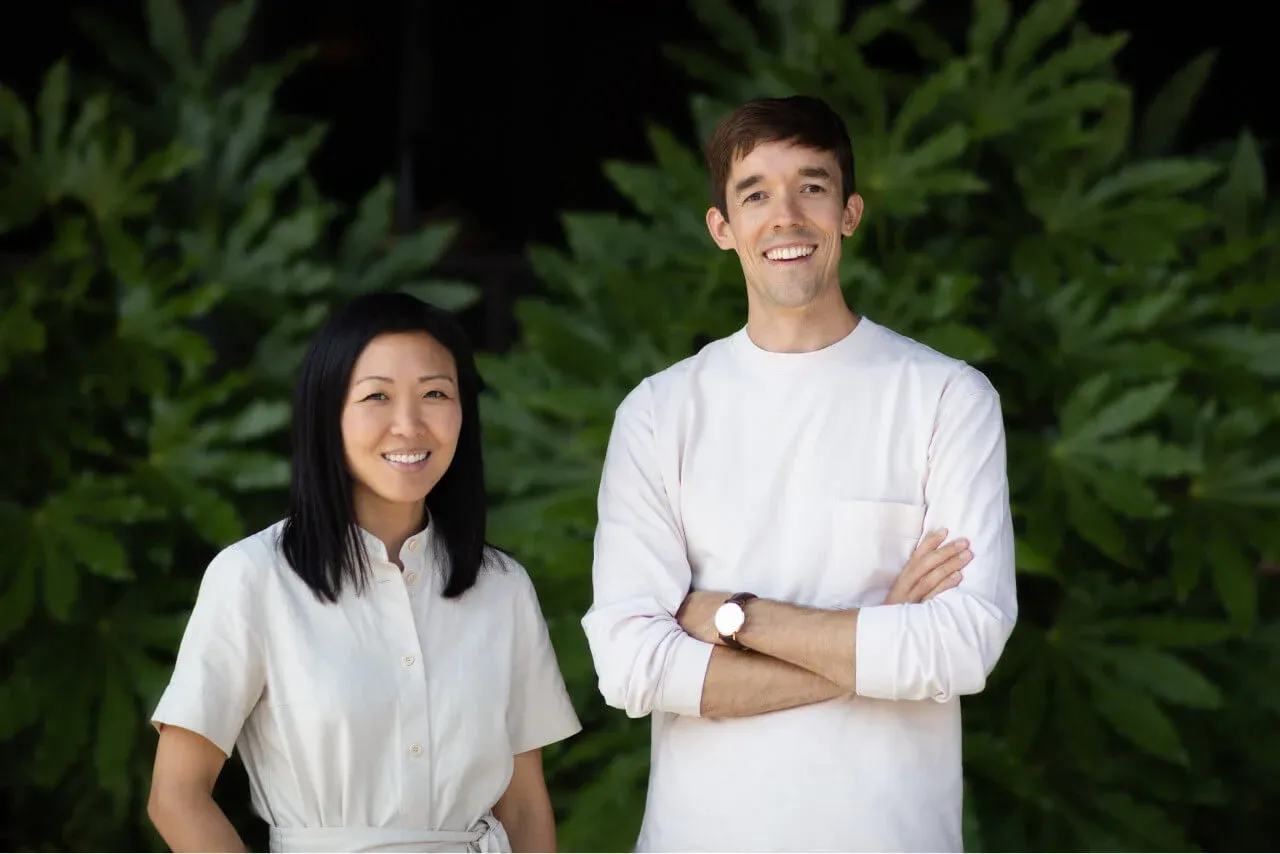An interview with Michelle You, Co-Founder and CEO of Supercritical
Could you tell us about your journey and what inspired you to found Supercritical?
In 2007, I co-founded Songkick - a service that helps more than 20 million fans discover concerts every month through a website and mobile apps. I led the company as Chief Product Officer and learned loads through the ups and downs of building and scaling a startup. In 2017, Warner Music acquired Songkick.
In 2018, I joined LocalGlobe as a venture partner focused on climate tech. After leaving Songkick, I knew I wanted to work on the climate crisis, but didn’t know what I could do as a tech entrepreneur who had built a mobile app. I took that time to learn everything I could about the climate crisis and make investments. I invested in a consumer offset subscription service. When I signed up for the product and was told it would cost me $10/month to offset my lifestyle, which included multiple international flights to California, I was shocked by how cheap it was. I subsequently did a deep dive on the voluntary carbon markets and was shocked by the lack of quality.
Around that time, Stripe, Microsoft, and Shopify very publicly announced they would no longer buy conventional emissions avoidance offsets and would only buy carbon removal. When I learned that we need to scale carbon removal to remove 10 billion tonnes of CO2 annually by 2050 from a standing start of a few thousand tonnes, I knew I had found my next challenge!
In 2021, I co-founded Supercritical to help scale the carbon removal market. According to the latest IPCC reports, even if we decarbonize everything, switch to renewables and electric vehicles, we still need to remove 10 billion tonnes of CO2 annually by 2050 in order to stay below 1.5C of warming. The carbon removal industry needs to scale by 14,000x in the next 27 years. Businesses are rightly suspicious of conventional emissions avoidance offsets, which have been exposed to have very little climate impact and at worst are outright fraud. Most businesses lack the time and expertise to do the due diligence on these projects. Our mission is to make a portfolio of high quality carbon removal offsets accessible to any business. We want our team of climate scientists to be their outsourced carbon removal procurement partner.
How did you source and build your founding team and get Supercritical launched? What has been your growth journey since then and how did you achieve this?
I co-founded Supercritical with Aaron Randall, who was formerly the CTO at Songkick and I had known for many years. Since founding Supercritical in 2021, we’ve focused on helping startups and growth companies take climate action. These companies don’t have sustainability teams or dedicated resources, but they are mission-focused and want to take climate action. Helping a highly focused audience understand that taking climate action doesn’t need to be a daunting task helped us gain traction quickly. By the time we raised our Series A in June 2023, 35% of global corporate purchases of carbon removal had been by Supercritical customers.

Michelle You & Aaron Randall, Co-Founders of Supercritical
Can you tell us about your carbon accounting software and how it enables businesses to measure their carbon footprint and plan to get to net zero?
There are four key steps to taking climate action as a business:
-
Gather your internal data and measure your carbon footprint
-
Create a robust climate plan with a clear goal, such as “reach net zero by 2030”
-
Reduce your emissions where you can (scope 1+2) and remove emissions you have limited control over (scope 3)
-
Report and share your progress publicly
Supercritical helps companies across this entire journey.
How do you harness the power of AI in your software?
We use a rules-based engine to classify accounting data so that we can turn spend into emissions. For example, "bought some cakes for the office - £20" -> we match the word "cake" to deduce it's about food -> we convert the £20 to emissions based on our food conversion factor. We are evolving our use of Machine Learning (ML) and AI to augment and improve our existing methodology. We have been experimenting with natural language processing / ML and LLM-based classification (the type of ML model behind ChatGPT) and getting promising results.
In your view, how important will AI be in the future when it comes to how we reach net zero?
Companies like Google are already using AI systems to improve the efficiency of their data centre cooling systems. There will be similar applications like this where AI monitors a system and increases efficiency. AI is also used for forecasting renewable energy production, materials innovation as well as improving the design of fusion reactors! The compute resources for AI are very energy intensive, so companies should be deliberate about their infrastructure.
What is your advice to other budding entrepreneurs looking to set up sustainable businesses and achieve scale?
Impending regulation, a mission-focused workforce, and a growing climate crisis means sustainability isn’t optional anymore. Yet it doesn’t need to be complicated. Some of our customers are at seed stage and they follow the four-step process above. Anter, a VC firm, recently open-sourced their sustainability toolkit which is an excellent resource on sustainability for startups.
What are your plans for the future?
In September, we launched the Supercritical Climate 100 where we ranked the top 100 VC-backed London-based startups.
Follow Michelle on LinkedIn Follow Michelle on Twitter
Follow Supercritical on LinkedIn Follow Supercritical on Twitter


